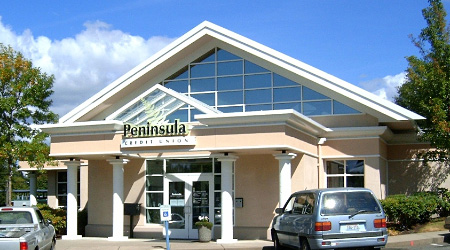Opening A Checking Account At A Credit Union Versus A Bank

At one time, many nationwide banks offered totally free checking accounts to their customers. While there were requirements to avoid fees and maintain a free checking account, they were minimal and manageable for most customers. However, with the increase of monthly fees, higher penalties and interest rates, and feeling neglected as a customer have lead many people to switch over to credit unions.
Profit Versus Non-Profit: Who Is The Owner?
The main difference between a bank and a credit union is who owns the financial institution. A bank is owned by a group of investors and shareholders, where the main objective is to increase the income of the bank. On the other hand, a credit union is not-for-profit and is owned by its customers who are referred to as "members," becoming shareholders themselves. This means that any income the credit union earns after overhead costs are covered goes back to the members in the form of lower rates and more services at a fraction of the cost.
Personal Service
The way a credit union functions as opposed to a nationwide bank changes the dynamic of the banking experience. At a bank, you are a customer; at a credit union, you are a member. You can expect to feel personalized service when opening a checking account at a credit union, where all the employees will know your name and will do their best to make you feel at home. It is easier to accomplish that "home-feel" at a credit union, which runs at a much smaller scale than a branch for a nationwide bank that services a higher volume of customers.
While nationwide banks might not be able to match the personal service of a credit union, an abundance of resources and a larger scale of business allow these banks to offer a higher level of convenience for customers. At a credit union, the teller might know you on a more personal level. However, at a bank, there may be less of a waiting time since there are typically more tellers to serve your needs.
Customer Service
Keep in mind that personal service should not be confused with customer service. While a teller at a bank might not know you on a first-name basis, you can also expect a high degree of service since it is in the bank's best interest to keep their customers happy. On that note, both banks and credit unions can offer excellent customer service when handling your checking account. They can also be the cause of great displeasure depending on the situation.
Account Safety
One of the most important aspects of opening a checking account is whether your financial institution can keep your money safe. Both banks and credit unions can accomplish this on an equal level since both financial institutions are insured by the government. For banks, the Federal Deposit Insurance Corporation (FDIC) is responsible for protecting a bank customer's money. Credit unions are insured by the National Credit Union Share Insurance Fund (NCUSIF), which is a government supported insurance fund that works like the FDIC, and with similar levels of coverage.
Services and Products
Aside from opening a checking account, you may be interested in the other products and services your financial institution has to offer. Most credit unions offer the same services and products of a larger bank, and often times, they come at a lower cost than most banks. For example, many credit unions are still offering totally free checking accounts, some of which are guaranteeing these free checking accounts for life.
Fees
One of the biggest reasons more people are leaving their banks for credit unions is the increase of monthly fees that are tied to their checking accounts. From service fees for maintenance and debit card use, to heavy penalties for overdraft and non-sufficient funds, many people are becoming fed up with the cost of maintaining a checking account with a large bank. Since credit unions are not in the business of making money off of their members, they lack the service and penalty fees most traditional banks charge.
Convenience
Many think one of the major downsides of opening a checking account with a credit union is a lack of convenience. Since they are much smaller than a nationwide bank, credit unions have fewer locations where you can do your banking compared to a big bank. Banks may also have more convenient service hours, 24-hour assistance, and customer service via online chat. However, credit unions are starting to catch up to the bigger banks in the convenience factor. For example, many credit unions are a part of a shared ATM network that can offer convenient access to numerous ATM machines. Credit unions can also be a part of a service network that allows customers to do their banking at any credit union within the network. So, when it comes to convenience, the gap between big banks and credit unions isn't as wide as many people think.
Bottom Line
Weigh the pros and cons of opening a checking account with a large bank or a smaller credit union, and see which works best for you. If a hometown feeling that makes you feel cared for and appreciated is something you're looking for, a credit union would probably suit you best. And of course, there's that whole factor of lower fees, fewer penalties and lower interest rates to think about.







